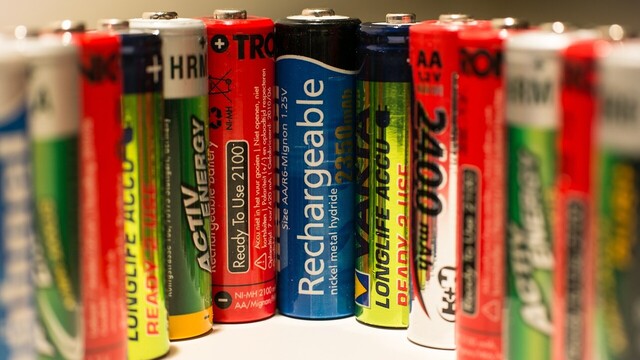The EU Parliament has passed a new battery directive that contains requirements with a view to greater sustainability. On the one hand, batteries are to be increasingly collected and the materials they contain are to be recycled. Secondly, portable batteries must be easily replaceable in the future.
The last point would ban the rechargeable batteries that are often glued into notebooks. Only with considerable effort can these be replaced, if at all. The new regulation states:
Device batteries must be designed so that consumers can easily remove and replace them themselves
Excerpt from the EU's new battery directive
However, the requirement “will not become mandatory until three and a half years after the regulations come into force,” it adds.
Smartphones and tablets are left out
The requirement does not apply to smartphones and tablets. For these, a future ecodesign regulation for cell phones and tablets will give manufacturers the choice of allowing easy battery replacement or meeting certain performance and durability requirements. There may also be exceptions for devices protected against water ingress.
In any case, the EU Council would still have to approve the new legal text before it comes into force. According to a report in the FAZ, that should be the case this summer.
More recycling will be mandatory
There are also targets for the collection of spent batteries. From the end of 2023, 45 percent of portable batteries are to be collected, rising to 63 percent by 2027 and 73 percent by 2030. For “light transportation” batteries, the percentage would have to be 51 percent by 2028 and then 61 percent by 2030. After all, 47 percent of portable batteries and accumulators sold in the EU were already collected for recycling in 2019, he said.
In addition, certain minimum quantities of recovered materials such as lead, cobalt, copper, lithium or nickel have been agreed. Eight years after the directives come into force, minimum quantities of recycled materials will then also apply to the production of new batteries. The background to this is that the growing demand for electric cars and energy storage systems in particular is expected to lead to a massive increase in demand for raw materials. By 2030, global demand is expected to increase 14-fold.
In addition, the mining of certain “critical raw materials” has negative environmental as well as social impacts. “The new regulation introduces a due diligence obligation for battery producers to combat human rights abuses and ensure that batteries are ethically sourced,” the EU letter says.
Other items include a “mandatory carbon footprint declaration and labeling for traction batteries, batteries for light transport such as electric scooters and bicycles, and rechargeable industrial batteries with a capacity of more than 2 kWh” and a “digital battery passport” for these products. More Inf
From my understanding, it’s not built-in batteries the issue but batteries that are glued and cannot easily be removed even if you open the laptop’s internals. Am I wrong?
not entirely sure about the difference, but as far as I know built-in batteries basically mean glued ones/hard to remove. The terms seem to be used interchangeably
I see. Well, interested to see the solutions created for the thin and light category then
I wonder if it won’t be more affordable for the manufacturers to make their devices water resistant instead of repairable. Does anyone happen to know more about this exception?




